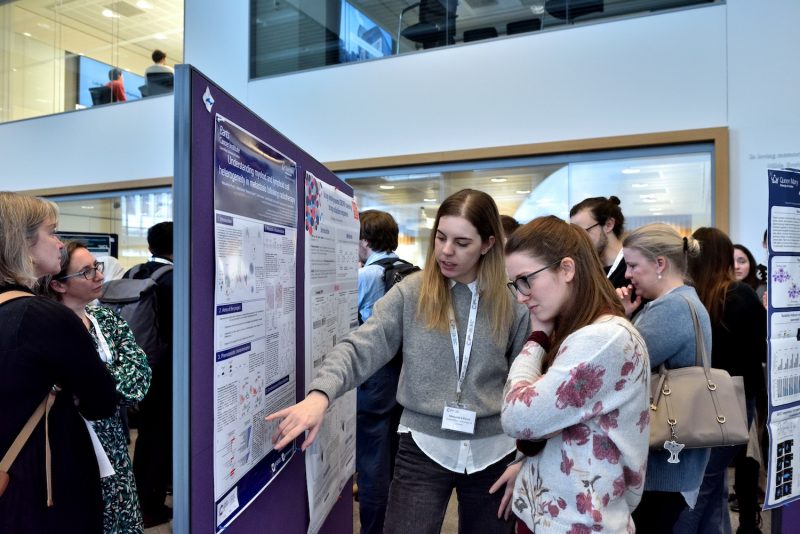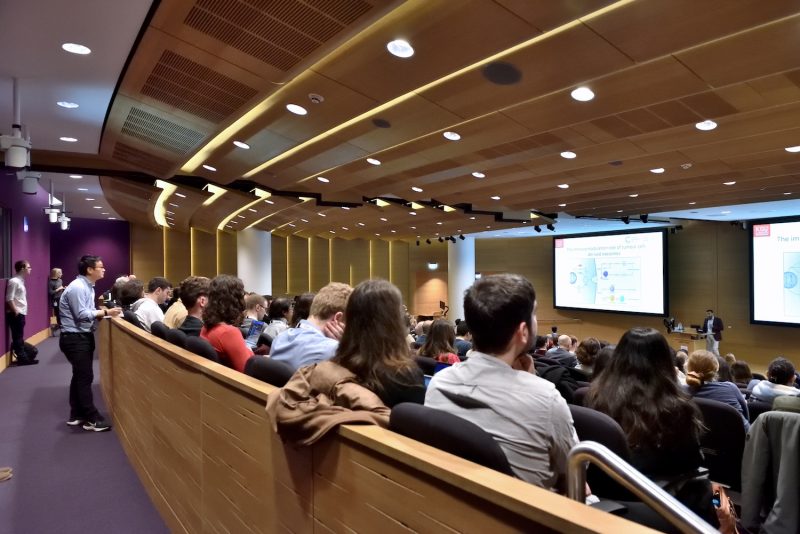Cancer Research UK Awards £10.5M to the City of London Centre for Clinician Scientist Training
Cancer Research UK has announced that the Cancer Research UK City of London Centre is set to receive a £10.5 million-pound cash injection to train more doctors as clinician scientists, so they can develop careers undertaking cancer research alongside their clinical practice.
The funding will enable partner institutions of the City of London Centre, which includes University College London, Queen Mary University London, King’s College London and the Francis Crick Institute, to continue to train the next generation of clinician scientists, enhancing the diversity of their research teams, and helping to accelerate development of novel biological therapies.
The City of London Centre offers a globally unique training environment across our four institutions and their healthcare partners with its PhD students, including clinical research training fellows (CRTFs) and MBPhD students, given opportunities to undertake world class collaborative projects across institutions.

“Cancer Research UK’s continued commitment to our clinical training programme enables us to equip the next generation of clinical academics with the multidisciplinary skills they will need to develop the cancer treatments of the future.”
Tariq Enver, Director, CRUK City of London Centre
Clinician scientists play essential roles in helping to bridge the gap between scientific discovery research and clinical research involving patients. Working across both research settings, clinician scientists make vital contributions to new knowledge and its translation to clinical practice.
Cancer Research UK’s Clinical Academic Training Programme (CATP) Award was established in 2019 when a 5-year £50.7 million investment awarded was awarded across its research centres including the City of London Centre. The new round of awards will continue to transform clinical research training at nine of CRUK’s research centres over the next five years. Cancer Research UK will have invested more than £109 million in this programme over ten years, signalling the critical role the charity plays in supporting the UK’s life sciences ecosystem, funding around 50% of all publicly-funded research in the UK.
“Clinician scientists have a very important role to play by bringing their knowledge and experience of treating people with cancer to scientific research.”
Michelle Mitchell, Cancer Research UK’s Chief Executive
She added: “We need all our doctors and scientists to be able to reach their full potential, no matter their background. That is why we are continuing to provide flexible training options for early-career clinician scientists. After the success of the first five years of this programme, we want to encourage even more clinicians to get involved in cancer research to help us get closer to a world where everybody lives longer, better lives free from the fear of cancer.”

Becoming a clinician scientist usually involves doctors taking time out during their medical degree or training, to undertake a PhD, before returning to train in their chosen specialisation. However, many clinicians don’t come back to research after qualifying as consultants, for various reasons.
Nearly three quarters (74%) of clinical research staff surveyed by Cancer Research UK in 2023 said that it has become harder to deliver research in a timely manner in the last 18 months, with 78% of respondents describing wider pressures on the health service as a substantial or extreme barrier. In addition, data from the Medical Schools Council Clinical Academic Survey reports a decline in the number of clinical academic positions between 2011 – 2020.
There is also evidence that flexibility is key, including the timing of the PhD. US data suggests that offering combined MBPhD qualifications retains more women in clinical research roles.
To address these issues and support clinician scientist training, the Cancer Research UK CATP award scheme provides funding for flexible training options, alongside mentorship and networking, to better support clinicians who want to get involved and stay in cancer research. The funding will allow the centre to offer PhD opportunities intercalated within the medical degree (leading to a combined Bachelor of Medicine-Doctor of Philosophy or MBPhD degree), and to early career clinicians carrying out their medical training prior to specialisation (as a CRTF).
The new City of London Centre Clinical Academic Training Programme bid was led by Professors Gerhardt Attard and Tariq Enver, supported by a team of new clinical academic leads from all four partner institutions: Professor Veronica Kinsler (the Crick), Professor Jessica Okosun (Queen Mary University London), Dr Debashis Sarker (King’s College London), Professor Shibani Nicum (University College London), and Dr Sally Leevers, Training Lead (the Crick).
“The City of London Centre offers a rich environment for cross disciplinary training of clinical academics. Importantly the multi-institutional and multi-disciplinary nature of our training teams and projects brings our faculty together around these future leaders and their scientific aspirations.”
Gert Attard, CRUK City of London Centre Clinical Academic Training Lead
“Undertaking a PhD with the CRUK City of London Centre gave me opportunities to develop a wide range of wet lab and computational skills as well as fantastic collaborations with teams from across the Centre. These skills and collaborations helped me put together a successful application for a clinical lectureship – I’m very grateful for the support from the CRUK City of London Centre in this regard!”
Vinaya Gunasri, a former CRTF whose PhD was funded by a City of London Centre CATP fellowship.
“For a long time now I have aspired to become an Oncology Clinician-Scientist and knew that the MBPhD programme would be a vital step in pursuing this career path. I have been fortunate enough to complete a translational project collaborating across 4 laboratories within the CRUK City of London Centre and couldn’t recommend this experience more. I have been incredibly lucky to complete this varied scientific training and receive both teaching and support from the CRUK City of London Centre.”
Callum Nattress is a final year MBPhD student whose PhD was funded due to a City of London Centre CATP award.
